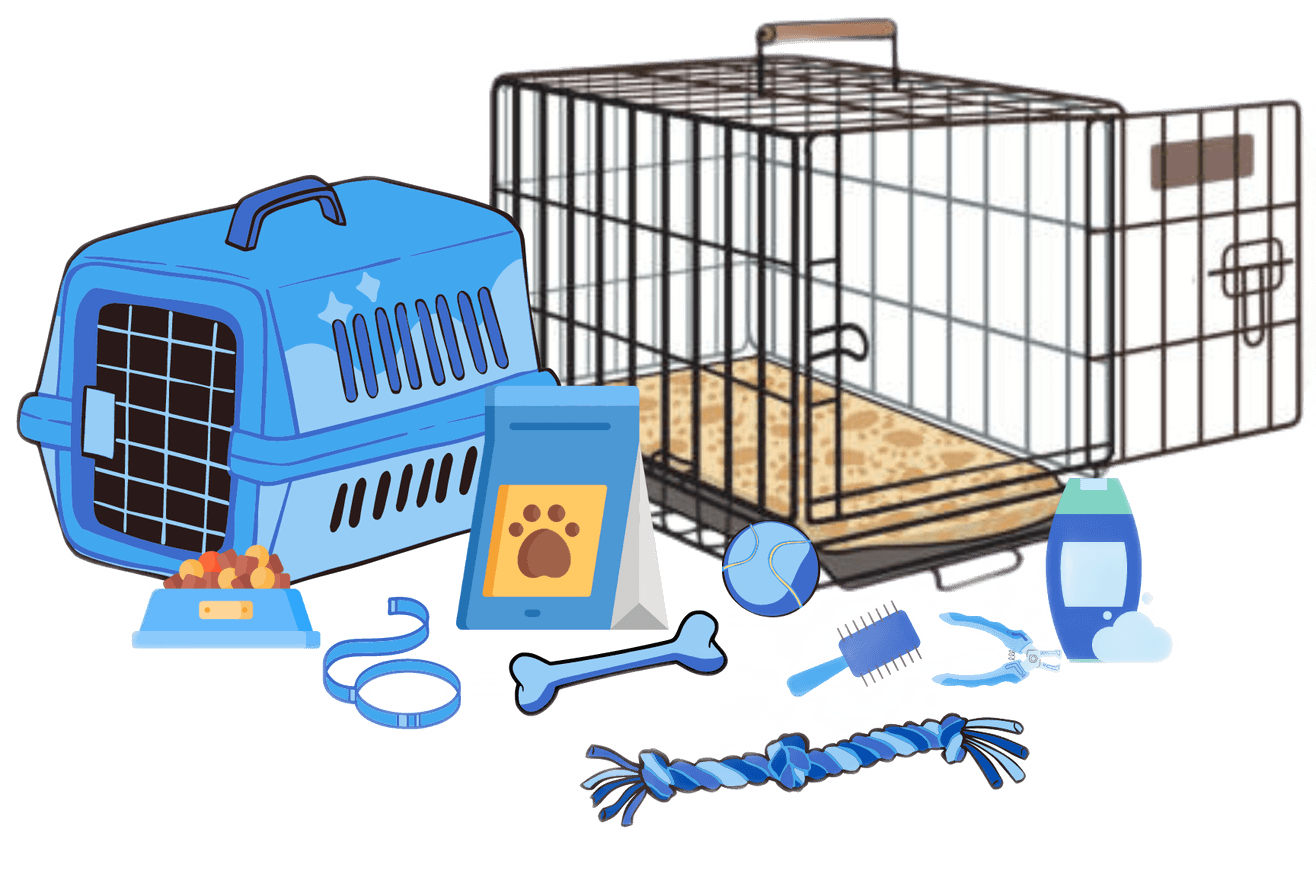
5 Tips When Bringing Home Your New Dog
Your first dog home is an exciting and memorable time for every pet owner. Meeting your new best friend, teaching them, playing with them, and watching their personality change as they grow are some of the most rewarding experiences a person can have. In hindsight, however, the process always seems much easier than it was. In order to have the smoothest transition from a no-pet house, to a house where the fur flies, be sure to look into the basics of your new addition.
1) Picking the Right Pet: The first step to bringing home a dog is finding the right one. Whether this means finding a reputable breeder for the specific personality and body type of dog you want, or scheduling trips to your local shelter to meet your new best friend, the choice has to be right for you. Take into account your house size, availability of fenced indoor space, and whether you want a high energy or sedate pet.
Investigate online for the breed profile of the dog you want, and then research the breeder you are interested in thoroughly. Puppies should be socialized in-home and be released to their new family after eight weeks old. When adopting, where many purebred dogs can be found, speak with the shelter volunteers for the personality of the pet, and take them out on a trial walk to get to know them.
2) Mental Preparedness: Once you’ve narrowed down how you are getting your new dog, it’s time to research all aspects of life with pets. Do you have a veterinarian lined up, know the cost of yearly pet care and have money set aside for emergencies? Have you read up on basic training guides and know how to pick out quality dog food? The last thing you want to do when your new pet is doing something strange is take a Google break, so reading when there is peace and quiet is usually the best option.
Vets will often go through basic puppy care for new owners, and can troubleshoot any concerns you have on the first visit. It is always easier when you know how much food they should be eating, how best to encourage easy housetraining, how to introduce the dog to their crate, and tips for healthy play. Forewarned is forearmed, though, so read all the guides you can while the house is quiet.
3) Equipment: Puppies don’t require a lot of equipment. Nutritious food appropriate for their age, a variety of toys for chewing, a baby gate for restricting room access, the right sized collar and leash, and a crate big enough to fit them into adulthood are the basics every owner should invest in. Plush dog beds, fancy treats and toys, and all the doggy costumes can usually wait until you get to know your new friend better.
4) Socialization: The most important step to take once your pet has come home is to socialize them right away. If possible, take the week off of work or bring them home when you have no other commitments in order to spend as much time getting them used to their new place as possible. Whenever correction for an undesirable behavior is needed, never yell or spank a puppy or dog, they won’t understand what is going on but they will learn to fear you instead of view you as their family member.
Enroll them into a puppy socialization class once they receive their first round of vaccinations at eight weeks. Bring them on as many errands as possible, from rides in the car to walks down the street. Early experiences with as many different environments as possible can make the difference between a nervous adult dog and a calm and happy dog.
5) Vet Check and Vaccinations: In the first week your new dog is home, be sure to schedule a vet check for them. This will introduce your new puppy to your vet, they will get preventative medications, and you will get a better idea of their health. Vaccinating and getting preventative medications, such as heartworm and flea and tick medication can be the second most important thing you can do for your dog. Not only will these initial vet visits let your pet live a long and healthier life, but they will also save you money on future illnesses. Be sure to schedule yearly wellness visits and dental cleanings in order to keep your pet in tip-top shape.
While getting a dog can seem like a simple process, once in your home it can be overwhelming. First time dog owners will be grateful for having done research, so that in a year you are happy with your new best friend, and not trying to tackle behavioral problems. Most important advice of all, though, is to enjoy your new friend and have lots of fun!
By Lauren Pescarus



